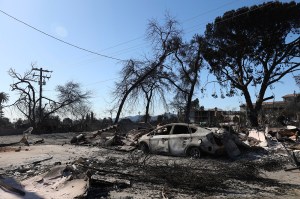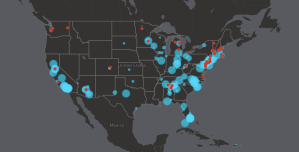
Phil
Brown
Distinguished Professor of Sociology and Health Sciences, Director of Social Science Environmental Health Research Institute
Phil Brown in the Press

EPA Seeks Comment in Effort To Loosen Decade of Forever-Chemical Reporting
Phil Brown, the director of the Social Science Environmental Health Research Institute at Northeastern University, told Newsweek that the “most alarming” aspect of this proposed rule is the exemption from reporting for imported products.

Warnings Issued Over Contamination Caused by US Military Bases
To reduce the PFAS contamination around military bases, the Department of Defense can replace AFFF with “safer, non-fluorinated” foams, Phil Brown, the director of the Social Science Environmental Health Research Institute at Northeastern University, told Newsweek.

EPA Moves To Roll Back Drinking Water Standards
“I am very concerned, as are all the scientists and affected residents whom my colleagues and I speak with all the time,” Phil Brown, the director of the Social Science Environmental Health Research Institute at Northeastern University, told Newsweek.

Map Shows Thousands More Areas Where Groundwater Could Be Contaminated
Features research on PFAS chemicals by Phil Brown.

Study Finds Increased Miscarriage Risk After Exposure to This Chemical
“We already know that PFAS are associated with preterm birth, low birth weight, reproductive toxicity, preeclampsia, decreased fertility, and single occurrence of miscarriage,” Phil Brown, a professor of sociology and health sciences and the director of the Social Science Environmental Health Research Institute at Northeastern University, told Newsweek.
Undark
Amid PFAS Fallout, Maine Residents Navigate Medical Risks
Phil Brown, a Northeastern University sociology professor and a co-director of the PFAS Project Lab, said the medical community “doesn’t know a lot about occupational and environmental health,” adding that “it’s a very minimal part of the medical school curriculum” and continuing education.

Your Smartwatch Could Carry a Hidden Health Risk
In the U.S. only Michigan has a maximum contaminant level for PFHxA, specific to drinking water contamination, while several other states “have advisory or notification levels, or cleanup levels in groundwater, soil or fish tissue,” Phil Brown, the director of the Social Science Environmental Health Research Institute at Northeastern University, told Newsweek.

Map Shows States Where Carcinogens Detected in Drinking Water Sources
There are many sources of human PFAS exposure, including through “manufacturing, wastewater treatment, sludge application to land, firefighting foam, building products, personal care products, and dietary sources,” Phil Brown, the director of the Social Science Environmental Health Research Institute at Northeastern University, told Newsweek.

What to Know About the EPA Limits on ‘Forever Chemicals’ in Drinking Water and Your Health
“It is really one of the broadest categories of chemical ever used, so that does make it very exceptional,” said Phil Brown, an environmental sociologist at Northeastern University in Boston who has studied the chemicals.
The 19th
A train derailment spilled toxic chemicals in her Ohio town.
Phil Brown, a professor of sociology and health sciences at Northeastern University who has written books on toxic waste activism, said women, and mothers in particular, have consistently organized locally after incidents like the Ohio train derailment.












